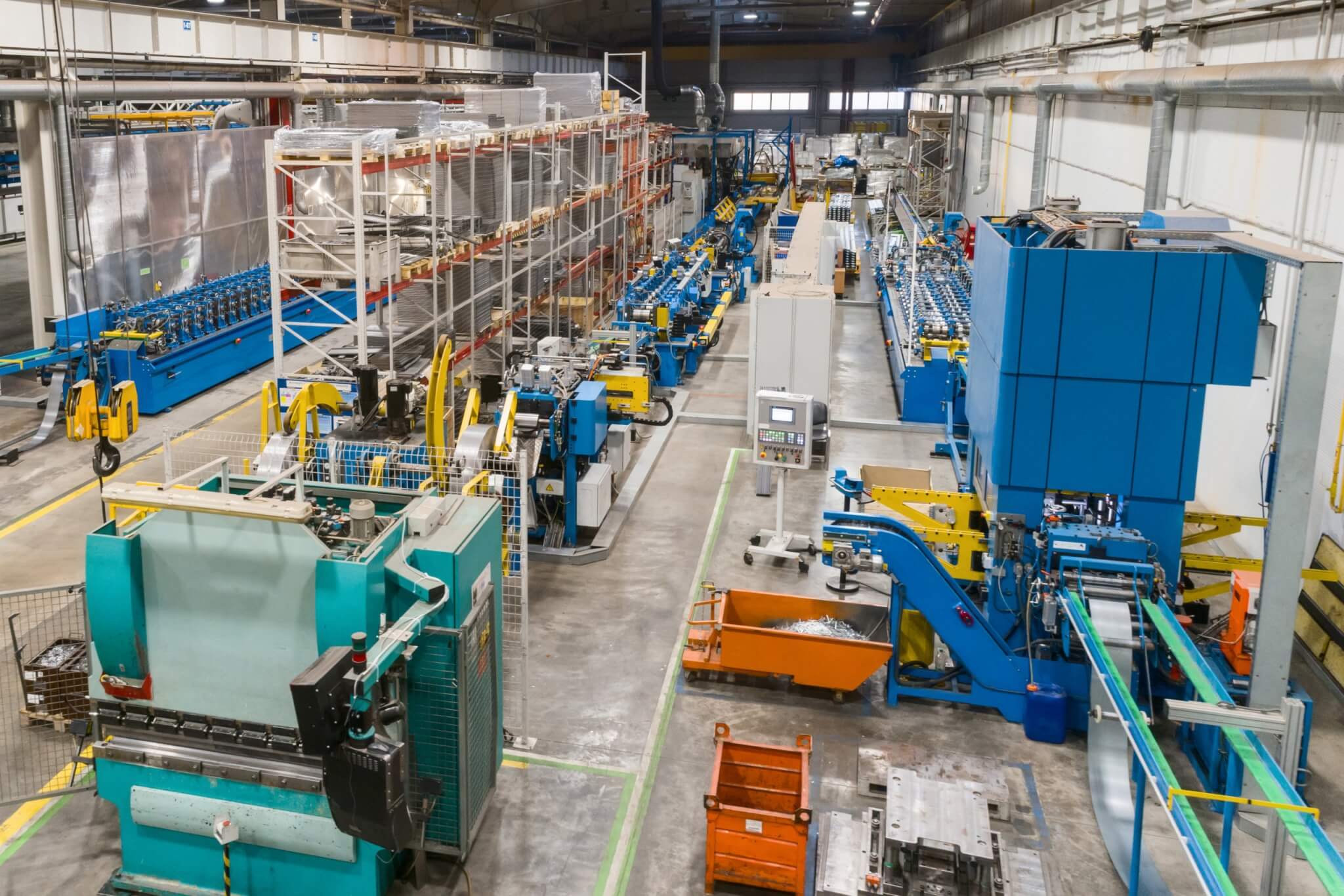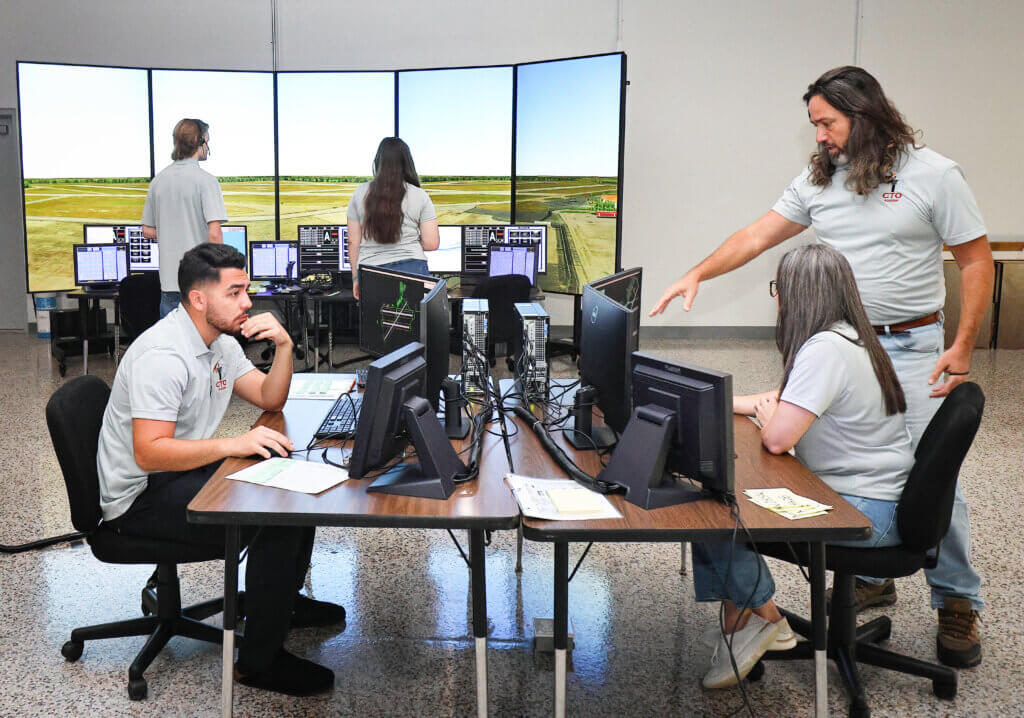Pan-American Agreement Could Spur Growth in Polk County
The United States is at a critical juncture, one in which Polk County could benefit if the dependence on manufacturing moves from Asia to the Americas.
In the Harvard Business Review’s “The Case for a Pan-American Manufacturing Ecosystem,” the authors say North America, Central America and South America must work together to manufacture and transport critical goods, reducing the reliance on Asia.
Such an agreement “will also help build the economies of Mexico, Central America and South America, which would help address the immigration problem now plaguing the United States. It would also create a bigger market for U.S. manufacturers,” the article states.
Javier Marin, senior director of Business Resiliency and Global Trade for the CFDC, said such an agreement would affect three areas: people, infrastructure and business.
People: Immigration from Latin America, whether legal or undocumented, is mostly driven by economic and quality of life issues, including unemployment that stands above 10% and corruption, he said. Addressing those issues should entice people to remain in their home country.
Infrastructure: The U.S. knows how to build things, and a partnership with Latin American countries would improve logistics infrastructure and potentially hurt China’s ever-growing investment in Latin America.
Business: If the U.S. invests its resources in economic development and education in Central and South America, it would help create jobs and reduce corruption. The talent is there. “There are a lot of people with degrees, but they can’t find a job. On the other hand, talent is the No. 1 issue for site selection by major companies. With the availability of talent in our own back yard, it makes sense to explore near-shoring opportunities.”
Polk County is already the logistics hub in Florida, with easy access to Port Tampa Bay, which is expanding its service, Marin said. It’s already expanded direct service to Costa Rica and is working on adding additional countries.
“Whatever can’t be produced in the U.S. can easily be produced in these countries, then transported to Port Tampa Bay,” he said. “That would help Polk County continue to be the logistics hub in Florida for the eastern U.S.”
In addition, more and more people from the Miami area, many of whom have deep connections to Latin America, are moving to Central Florida, Marin said. “Connections to Latin America will become stronger as people move here and create even stronger reasons why Polk County needs to continue its efforts in investing in global trade with Latin America.”
Marin said an agreement is a “real good initiative as long as we can help battle corruption, which would benefit both us and Latin American countries, and as long as we can persuade American buyers that supporting geographically close economies is better long term for the security interest of the U.S.”
Following are questions and answers with two local leaders on the topic:
- Ridvan Gedik, an associate professor of Supply Chain Management (SCM) at the Barney Barnett School of Business and Free Enterprise at Florida Southern College.
- Angela Garcia Falconetti, president of Polk State College and chair of the board for the CFDC.
CFDC: Do you think this is a good idea, and if so, why?
Gedik: Supply chain management requires companies to synchronize their activities with both upstream and downstream operations. In general, three important dimensions (cost, quality and time/capacity to answer the needs) are considered when a company chooses its supply chain partners (suppliers, vendors, support units, etc.). Selecting the right partner will be followed by successfully aligning operations within the supply chains.
This move will make near-shoring — bringing supply chain activities closer to home — more than a possibility for all global U.S. companies that operate with supply chain partners in Asia. With the government incentives and massive investments, the overhead that a traditional company would have to endure will be much less. Thus, via near-shoring, the U.S. companies can benefit from significant supply chain gains and efficiencies in all three dimensions. For instance, long transportation delays and expensive rates will be reduced, which will save both funds and time for the companies. Time differences, language and political and cultural differences will also be less disruptive with this move.
Falconetti: Strengthening partnerships and transportation across the Americas would benefit our regions and provide opportunities we may not even be aware of at this point in time. Collaboration and innovation are great practices as we think of ways to propel our communities forward into brighter futures with greater opportunities for all.
CFDC: Do you think it’s feasible?
Falconetti: This is a very long-term, expensive and complex initiative, but as with any endeavor, it could be feasible if all sectors come together to contribute their expertise, investment and support. While there are a lot of moving parts to strengthen the Pan-American manufacturing ecosystem through business, education, transportation and more, it would be possible with the necessary partners at the table.
Gedik: This is feasible, and its success depends on successfully expanding manufacturing capacities at partnering countries, educating the right labor force in the best way, and creating/expanding road, water and rail transportation channels between and within countries.
CFDC: If something like this is accomplished, how would you and your business college help prepare students for jobs in advanced manufacturing, logistics and transportation?
Gedik: At FSC, we are already working on educating the workforce that will be highly sought after in the 21st century. Analytics and the tools that are needed to handle big data are already being integrated into the curriculums of our programs. We work very hard to create an atmosphere in our courses that highlights the interdisciplinary nature of manufacturing, operations and supply chain management and logistics. These fields are very interconnected and we prepare our students to be capable of using a common language to address the challenges emerging from these areas when modern companies need them.
CFDC: Similarly, how would Polk State help prepare students?
Falconetti: Polk State College is dedicated to fulfilling local and regional workforce needs and successfully provides training in the fields of advanced manufacturing, logistics and transportation. Polk State remains a leading choice for quality workforce training for many Polk County and Florida manufacturers and logistics companies due to its industry-developed and tested curriculum, state-of-the-art technology and innovative training solutions. Through the Polk State Corporate College, Polk State provides affordable, flexible and customizable training solutions for employers and their employees, including accelerated, on-the-job training opportunities. The college remains on the cutting edge of workforce training thanks to the hard work of diverse advisory boards comprised of industry leaders and local employers. Examples of partnerships include:
- The Mosaic Company Apprenticeship Program established at the Polk State Corporate College in 2007. Nearly 260 individuals have been trained through a combination of classroom studies and on-the-job training.
- Training for Nucor Steel’s Frostproof plant, which opened in late 2020 and created more than 250 high-wage jobs in Polk County. Training continues.
- Training for more than 300 employees at Florida Can Manufacturing. The new aluminum can manufacturing facility under construction near the CSX intermodal terminal off State Road 60 is estimated to bring up to 500 jobs to Winter Haven.
CFDC: What are the essential elements employees in those fields should have?
Falconetti: Both technical and soft skills are critical for employees in these fields due to ever-changing technology and a need for troubleshooting. The Polk State Corporate College trains individuals in a wide area of necessary skills, including mechanical and electrical troubleshooting, precision maintenance and operator equipment care.
Gedik: SCM talent that is skilled at both quantitative (analytics, financial, marketing and data literacy) and qualitative (negotiation, communication, ethics) are highly desired by the modern companies.
CFDC: This seems to shrink the global marketplace, but in reading the article that could be a good thing. Do you agree and if so, why?
Gedik: I do not think this will result in a shrunk global marketplace. As the article stated, China is also expanding its infrastructure to get connected with the African market. Leveraging Pan American ties for better-connected businesses will motivate the companies to use the saved efficiencies for other investments and economically nurturing opportunities.
Falconetti: Technology will keep the global marketplace connected and continue to open opportunities for collaboration and business.
CFDC: If this idea moves forward, what role do you think Polk County would play to see it to fruition?
Falconetti: From a geographical standpoint in which Polk County connects all parts of Florida with its centralized location, Polk could serve as a hub for connecting Florida to a larger network of Pan-American industry.
Gedik: Polk County is already located at a strategic place and serves as a hub for transportation and logistics activities in Central Florida. If this idea moves forward, local and national companies will more likely get ready to expand their capacities into the region to serve more customers in the most economical and convenient way. Intermodal transportation — using more than one mode, like rail plus truck, truck plus water, etc. — will have to be more frequently used.
Thus, expanding and modernizing maritime transportation will be as crucial as doing the same with road transportation. In addition, Polk County would attract more cutting-edge food processing and manufacturing investments since timing these products into the market will be more important with this move. So, more companies would be interested in being closer to the transportation hubs such as Polk Country.



